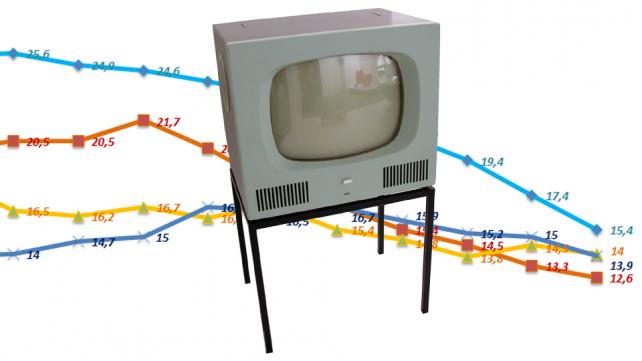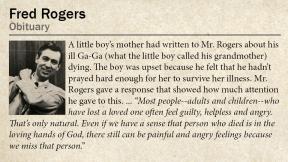
Whether you love it, hate it or are indifferent to it, television is a fixture in most American homes today. Ninety-eight percent of households in the United States have at least one television set and 34 percent have two.
Forty-nine percent of Americans say they watch too much television.
Television isn't just about the number of television sets people own though. It is also about its practical effects on viewers and the content it presents.
Below are some statistics to consider about television. All of them were taken from the TV Turnoff Network.
The time cost of television watching
- According to the A.C. Nielsen Co. the average American watches 3 hours and 46 minutes of TV each day (that's more than 52 days of nonstop TV-watching per year).
- By the age of 65 the average American will have spent nearly nine years glued to the tube.
- Parents spend 38.5 minutes per week in meaningful conversation with their children is 38.5.
The effect of television on daily life
- The number of videos rented daily in the United States is six million while the number of public library items checked out daily is three million.
- Forty percent of Americans always or often watch television while eating dinner.
How much violence is there, really, on television?
- The average American child sees 200,000 violent acts on television by the time he or she reaches the age of 18.
- Eighty percent of Hollywood executives believe there is a link between TV violence and real-life violence.
Television: It's not just about shows
- An average child sees 30,000 TV commercials in a year.
- By the time s/he reaches the age of 65, the average American will have seen two million TV commercials
Television: The Knowledge Builder?
- While 59 percent of Americans can name The Three Stooges, only 17 percent can name three Supreme Court Justices.








Comments
your statistics will really make me think twice before watching any tv programms.
Location
Well writtent.v.=bad
Location
It helped me understand more.
Location
It helped me understand more
Location
The column itself is well written and unbiased, but the sources provided are obviously from a biased source. Try to incorporate findings from a less biased source, that way the reader doesn't just get the one extreme or the other.
Location
This article was quite biased. For instance did you happen to mention anything on educational TV shows. School House Rocks! Anywhoo, The Supreme court justices change over the years and they have several long names that are often hard to spell, and even harder to remember. Larry, Curly, and Moe are short names that were designed to be "catchy". Now I'm not saying that your article isn't accurate, I'm saying its biased. Even though it is quite "factual" it doesn't show the full picture. If I wanted to I could spend the day coming up with true statisics contrary to your information. Try to be more objectionable when you write your next article.
Location
I feel television has an adverse effect on my relationship with my husband. We never talk any more -- he just sits and stares at the set everynight then drags himself off to bed. We have lost an important connection to each other because of that stupid television set. I wish it would go out. I wouldn't replace it. . . .
Location
Your article is very good, and it's good that you are promoting a message against TV. I'm 15, and my friends all think that I'm not normal because I don't waste my time watching TV. It's comforting to see a message against TV instead of a message advertising it.
Location
Pages
Add new comment